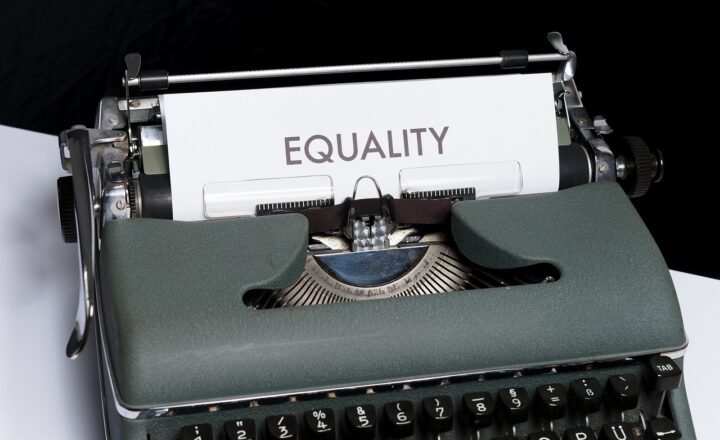The Role of Political Alliances in Preventing and Escalating Global Conflicts
November 16, 2024

Political alliances play a pivotal role in the dynamics of global conflicts, acting as both bridges for cooperation and barriers that can escalate tensions. Understanding how these alliances function is essential in evaluating their effectiveness in both preventing and exacerbating conflicts worldwide. This article explores various dimensions of political alliances, including historical examples, theories of international relations, and contemporary case studies that highlight their role in global affairs.
1. Understanding Political Alliances
Political alliances are formal agreements between countries that aim to advance common interests. These alliances can take various forms, including military partnerships, economic coalitions, and diplomatic pacts. Significant examples include NATO (North Atlantic Treaty Organization) and the European Union (EU). The primary goals of political alliances are:
- Collective Defense: Alliances like NATO aim to assure member states that an attack on one is an attack on all, which serves as a deterrent against potential aggressors.
- Economic Cooperation: Economic alliances, such as the EU, facilitate trade and economic development while providing a collective bargaining power on the global stage.
- Political Stability: Alliances can serve to stabilize regions by fostering dialogue and cooperation, thus reducing the likelihood of conflicts arising from misunderstandings or tension.
Ultimately, political alliances are about forging partnerships based on mutual interests, aiming to create a more stable and secure international environment.
2. Preventive Role of Political Alliances
Political alliances often emerge as mechanisms for conflict prevention. By collaborating on security issues and promoting diplomatic dialogue, alliances can mitigate the risk of armed confrontations.
Case Study: The EU and Regional Stability
The European Union has evolved from a post-World War II economic partnership into a formidable political alliance aimed at maintaining peace on the continent. Through its integration policies and support for member states, the EU has successfully fostered an environment where diplomacy takes precedence over conflict. The EU’s role in the Balkans during the 1990s demonstrates how alliances can engage early to prevent conflict escalation:
- The EU intervened diplomatically during the Yugoslav Wars, facilitating peace talks and deploying peacekeeping missions.
- Economic incentives, such as the prospect of EU membership for Balkan states, fostered cooperation and reduced animosities.
As a result, the EU has contributed to stabilizing the region, proving that political alliances can be instrumental in preemptive measures against conflict.
3. How Alliances Can Escalate Conflicts
While political alliances can prevent conflicts, they can also serve as a catalyst for their escalation. When alliances are perceived as threatening by non-member states, they can lead to heightened tensions and conflicts.
Case Study: NATO and Russia
The North Atlantic Treaty Organization has often been cited as a factor in worsening relations with Russia. Following the end of the Cold War, NATO expanded its membership to include several former Soviet states.
The following factors illustrate how NATO’s expansion contributed to conflict escalation:
- Perceived Encroachment: The inclusion of Eastern European countries is viewed by Russia as a direct threat to its sphere of influence, leading to increased military posturing along its borders.
- Military Exercises: Joint military exercises conducted by NATO near Russian borders exacerbate fears of potential aggression, prompting Russia to respond aggressively.
- Proxy Conflicts: NATO membership may lead countries to align against perceived aggressors, resulting in proxy conflicts as seen in regions like Ukraine.
These dynamics illustrate a critical flaw of political alliances—they can create divisions and heighten insecurities, sometimes triggering conflicts rather than preventing them.
4. Theoretical Perspectives on Alliances and Conflict
Several theories of international relations provide insight into the implications of political alliances for conflict management:
- Realism: This theory posits that states operate in a self-interested manner, often aligning with others for power dynamics. Alliances are seen as tools for states to enhance their security and deter adversaries, which may lead to an arms race or conflict escalation.
- Liberalism: This perspective emphasizes the role of international institutions in fostering cooperation. Liberals argue that political alliances can lead to more peaceful interactions by promoting democracy and economic interdependence.
- Constructivism: Constructivists focus on the importance of social frameworks in international relations. They argue that alliances shape identities and perceptions, influencing the likelihood of conflict or cooperation based on historical narratives and shared values.
Understanding these theoretical perspectives provides a multidimensional view of how political alliances are formed and their impact on international peace and conflict.
5. Contemporary Examples of Political Alliances in Action
Recent geopolitical developments demonstrate the continued significance of political alliances in the face of emerging global challenges.
Case Study: The Quad
The Quadrilateral Security Dialogue, comprising the United States, India, Japan, and Australia, represents a strategic alliance aimed at countering China’s growing influence in the Indo-Pacific region.
This alliance showcases how political partnerships can be formed in response to perceived threats:
- Military Cooperation: Joint military drills and intelligence sharing enhance regional security and deter aggression.
- Economic Collaboration: Collaborative initiatives aim to ensure supply chain resilience and economic stability within the region.
While the Quad aims to ensure stability, it also reflects concerns from China, potentially leading to greater tensions in the region.
Conclusion
Political alliances are vital mechanisms in the prevention and escalation of global conflicts. They provide forums for resolution, foster cooperation, yet can simultaneously deepen divisions and provoke arms races. As the world continues to grapple with complex security challenges, understanding the nuanced role of these alliances is crucial for policymakers, academics, and citizens alike. Striking a balance between cooperation and competition will determine the future landscape of international relations, where political alliances may either protect peace or incite conflict.
In conclusion, political alliances are not merely tools of war-making but are also instrumental in building peace and fostering cooperation in an increasingly complex global arena. Their significance endures, reflecting the constantly evolving nature of global politics and the need for collaborative frameworks to address shared threats and challenges.








